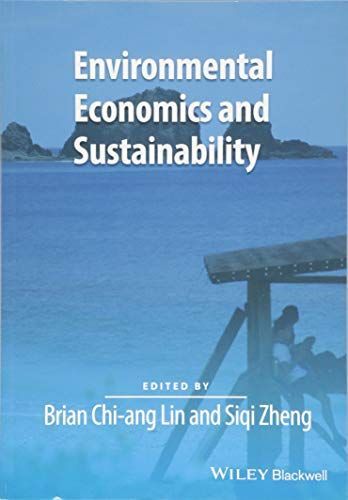
Environmental Economics and Sustainability
3. The Use of Economic Incentives -- 4. The Incorporation of Behavioural Instruments into Practice -- 5. Conclusion -- Acknowledgements -- Notes -- References -- 8: ECONOMIC EVOLUTION IN CHINA'S ECOLOGICALLY FRAGILE REGIONS -- 1. Introduction -- 2. Background Information -- 3. Geographical Conditions -- 4. Method and Data Statistics -- 5. Research Findings -- 6. Discussions and Conclusions -- Acknowledgements -- References -- 9: GLOBALIZATION AND CLIMATE CHANGE: NEW EMPIRICAL PANEL DATA EVIDENCE -- 1. Introduction -- 2. Literature Review and Analytical Framework -- 3. Empirical Strategy -- 4. Empirical Results -- 5. Conclusion -- Acknowledgements -- Notes -- References -- 10: A SURVEY OF THE LITERATURE ON ENVIRONMENTAL INNOVATION BASED ON MAIN PATH ANALYSIS -- 1. Introduction -- 2. Knowledge Advances Related to EI -- 3. Determinants of EI -- 4. Economic Effects of EI -- 5. Environmental Effects of EI -- 6. Policy Inducement Mechanism -- 7. Discussion, Further Developments and Conclusions -- Acknowledgements -- Notes -- References -- 11: ECONOMIC TARGETS AND LOSS-AVERSION IN INTERNATIONAL ENVIRONMENTAL COOPERATION -- 1. Introduction -- 2. Literature Review -- 3 The Model -- 4. Static Game -- 5. Dynamic Game -- 6. Extensions -- 7. Conclusion -- Acknowledgement -- Notes -- References -- 12: COOPERATIVE GAME THEORY APPLIED TO IEAS: A COMPARISON OF SOLUTION CONCEPTS -- 1. Introduction -- 2. Cooperative versus Non-Cooperative Approach -- 3. Solution Concepts -- 4. A Rawlsian Solution Concept Bounded by Individual Rationality -- 5. A Numerical Comparison of Solution Concepts -- 6. Conclusions -- Notes -- References -- INDEX -- EULA